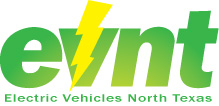For Everyone
The following information summarizes programs available to the general public:
Dallas-Fort Worth Clean Cities Try and Drive Alternative is a regional initiative dedicated to giving fleets and consumers the opportunity to try and drive alternative fuel vehicles and clean vehicle technologies before buying such technologies.
The Dallas-Fo rt Worth Clean Cities Coalition (DFWCC) works with local fleets and consumers to implement clean vehicle technologies. DFWCC's mission is to improve air quality by promoting cleaner, reliable, accessible, and sustainable transportation technologies. NCTCOG was designated by the DOE as the host agency for DFWCC in 1995 and participates in the national Clean Cities and Communities partnership.
rt Worth Clean Cities Coalition (DFWCC) works with local fleets and consumers to implement clean vehicle technologies. DFWCC's mission is to improve air quality by promoting cleaner, reliable, accessible, and sustainable transportation technologies. NCTCOG was designated by the DOE as the host agency for DFWCC in 1995 and participates in the national Clean Cities and Communities partnership.

A program of DFWCC, the Electric Vehicles North Texas (EVNT) program encourages and supports the transition to electric vehicles through industry partnerships, fleet education, and consumer outreach.
Energy Efficiency & Clean Energy: Energy efficiency and renewable energy are emerging topics of interest that can positively impact the North Central Texas Region. With proper implementation, they can help to improve air quality in the region by decreasing the amount of power generation needed and reducing emissions that contribute to air pollution and the region’s ozone non-attainment status.
Engine Off North Texas is your source to find information regarding all things idling in the North Central Texas Region. The information provided is directed for the public, freight industry, and local governments
The High Emitting Vehicles Program conducts regional programs in an effort to reduce emissions from on-road mobile sources. These initiatives focus on public awareness and enforcement of emissions standards. Under this program, the Regional Smoking Vehicle Program (RSVP) encourages drivers to voluntarily repair and maintain their vehicles through public awareness. The Car Care Awareness Program aims to spread the message of proper vehicle maintenance to educate the public and give them the tools they need to be a part of the regional air quality solution by keeping their vehicles running cleanly and efficiently.
Go Solar Texas: To increase deployment of solar across Texas, the NCTCOG has worked to compile key resources for Texans interested in learning more about going solar, and developed Texas-specific resources on best management practices for local governments. This work continues in part through support from the Texas State Energy Conservation Office (SECO).
Alternative Fuel Corridors: Alternative Fuel Corridors are designated by the Federal Highway Administration (FHWA) and are part of a national network of roadways that provide sufficient alternative fuel and charging facilities.
